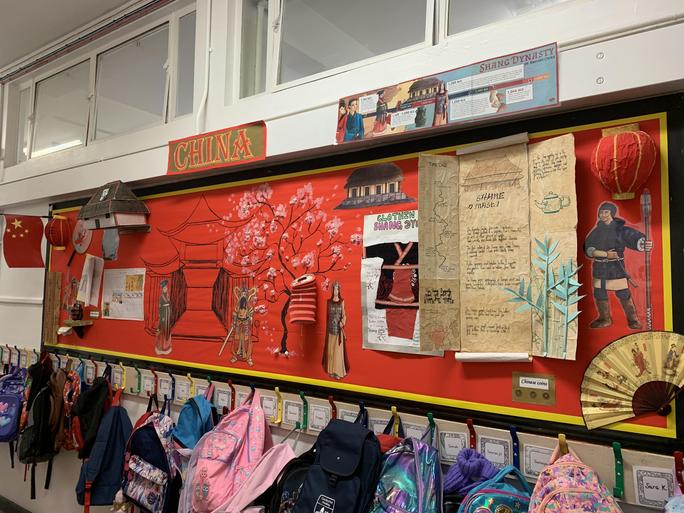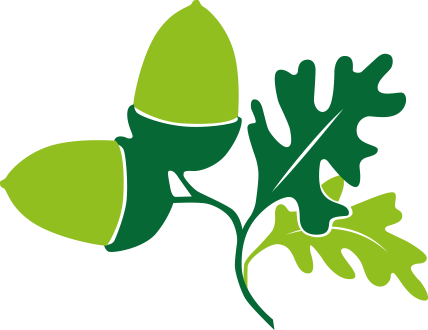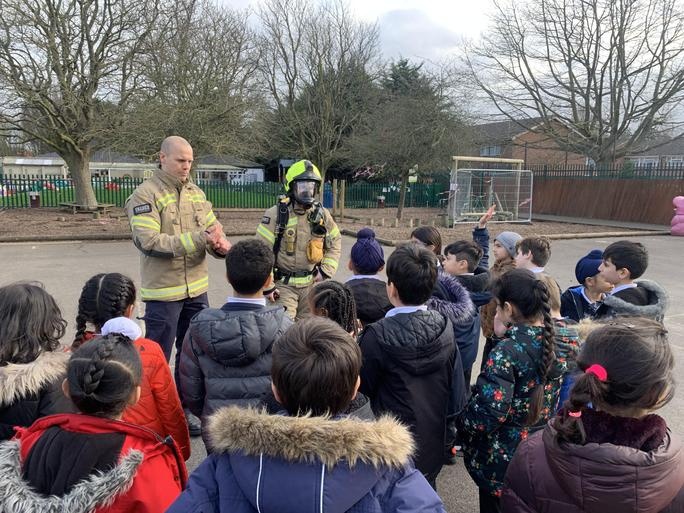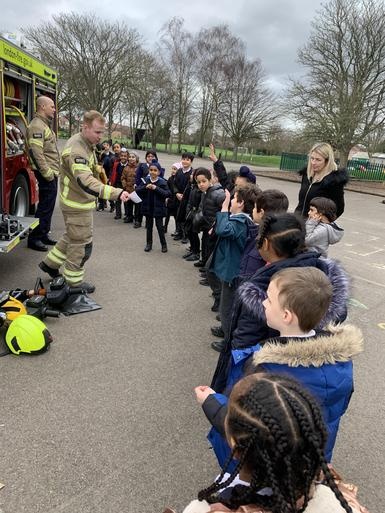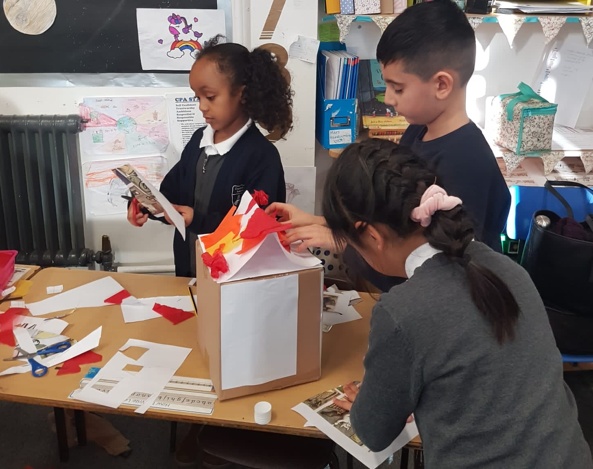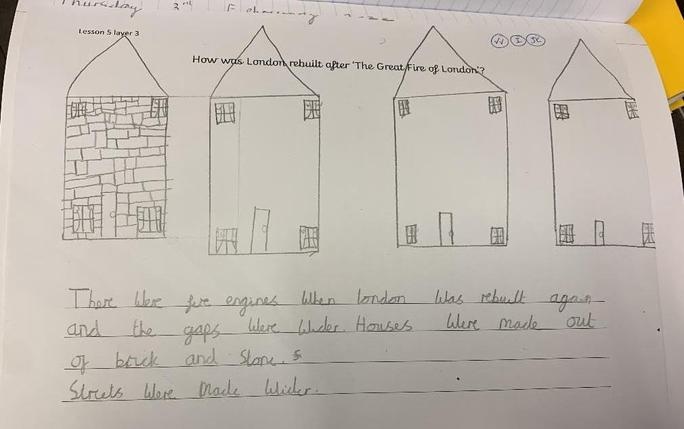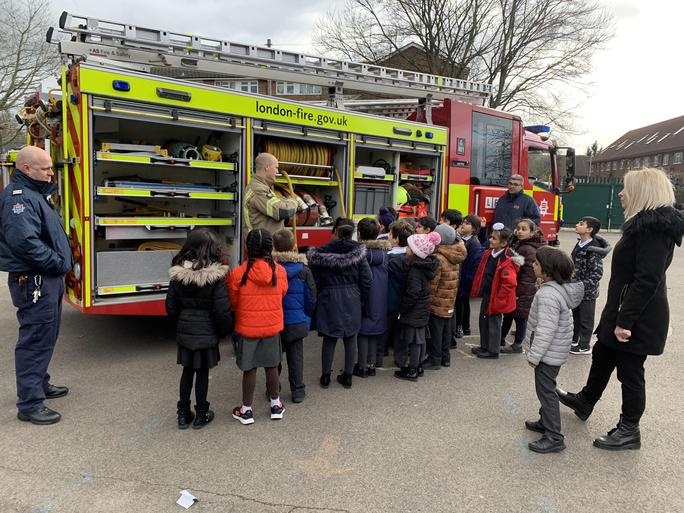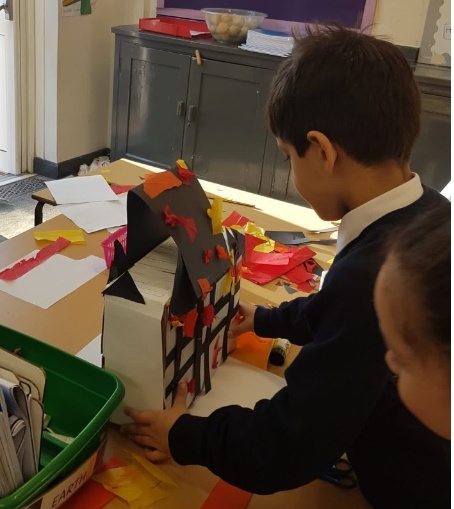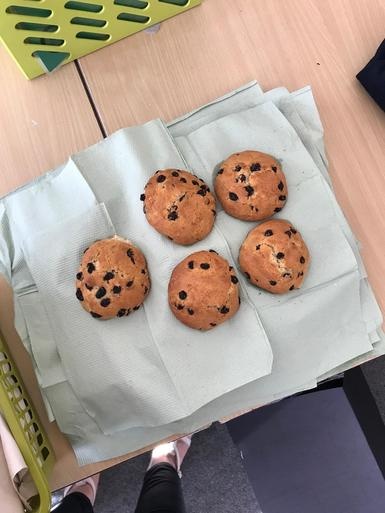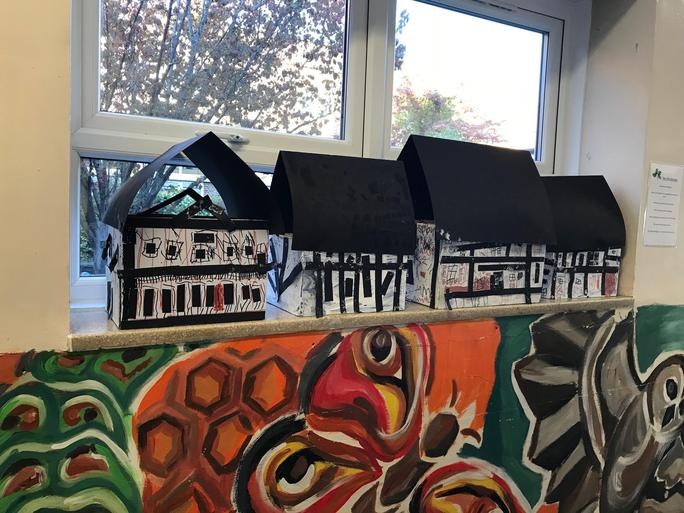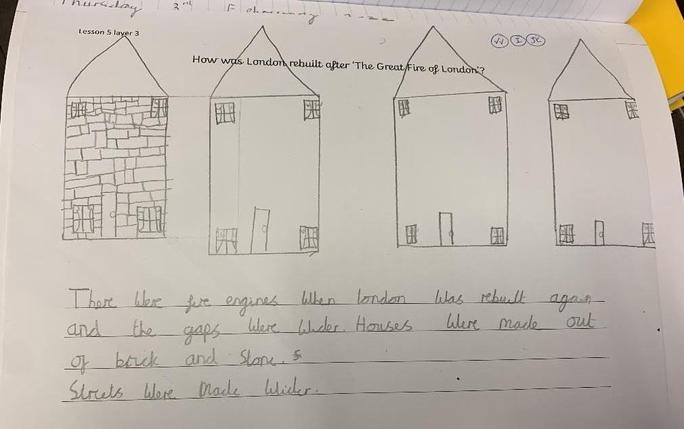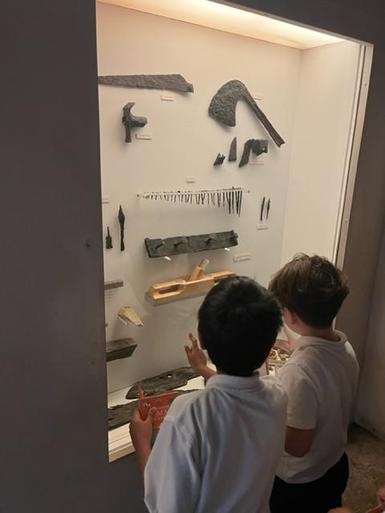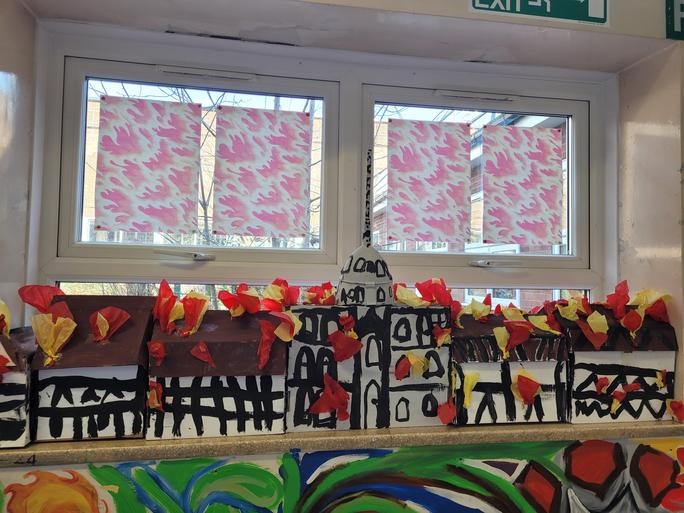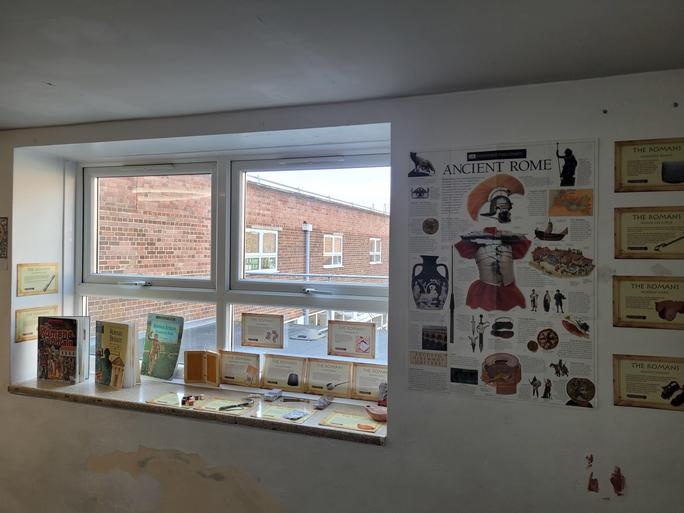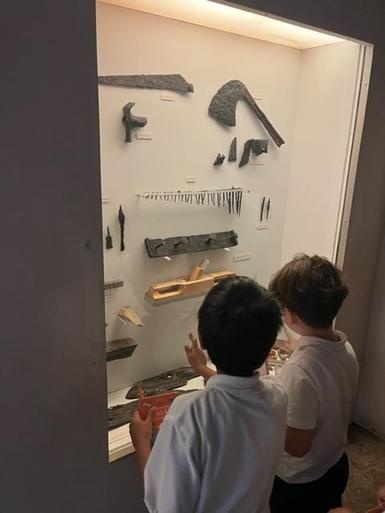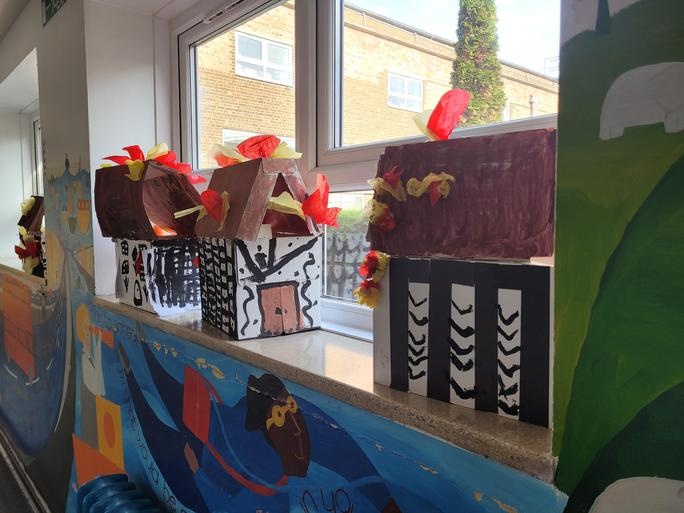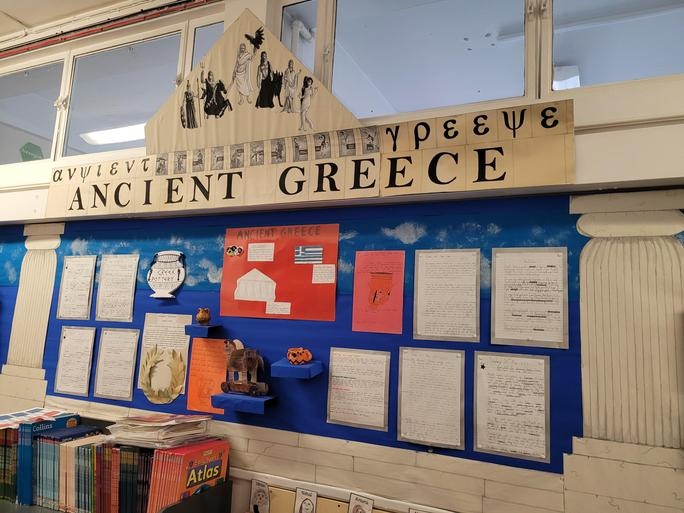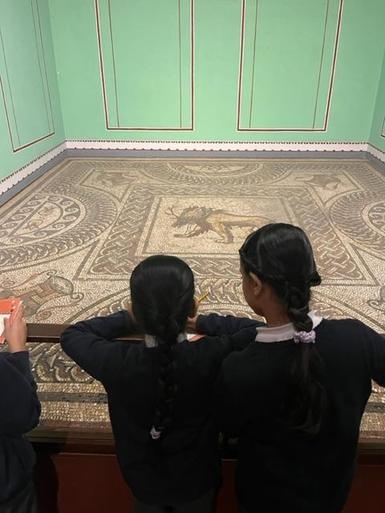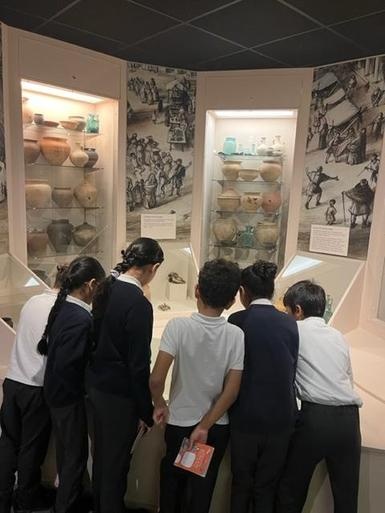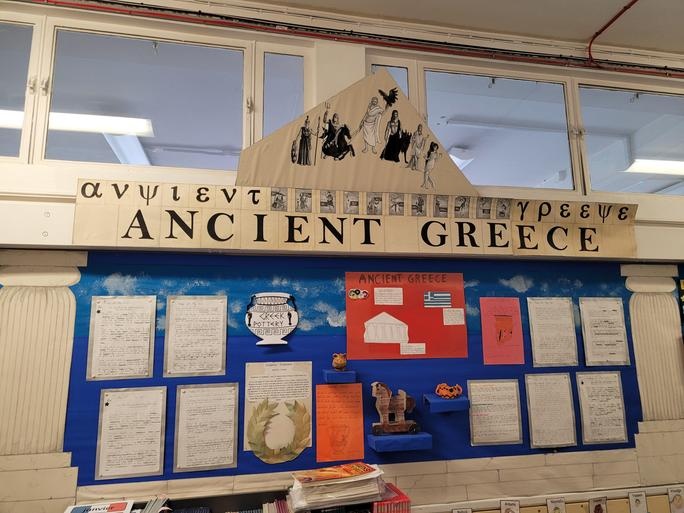History
History is not only about learning facts but it allows children to explore the past by comparing and contrasting, examining how and why things have changed, to learnabout historical figures and to develop their research and enquiry skills. History is important in understanding not only the events of the past, but how these have impacted on the world today.
At CPA we want to develop our children to have the skills to become young historians. We want all of our children to enjoy their historical learning and the process of becoming detectives of history. History gives children the opportunity to delve into another time, make comparisons between historical periods and compare their lives to others. Our school motto is ‘To question is to grow’ and history promotes inquisitive thinking by asking perceptive questions, to think critically, weigh evidence, sift arguments, and develop perspective and judgement. We aim to develop children’s understanding of their place in the world, to promote curiosity and fascination about the past and to link this to the current world around them.
The history curriculum at CPA is thoughtfully sequenced, with vocabulary and concepts built upon year by year. Our focus is on developing both knowledge and skills.
Historical skills that we develop at CPA include:
- A knowledge of chronology of British, local and world history
- Use and apply historical vocabulary for their time period and vocabulary linked to the passing of time and link this to other areas of the curriculum
- The ability to think critically about history and present their ideas in various forms
- To use primary and secondary sources to compare and contrast a historical time period
- An ability to use their enquiry skills research and seek out their own answers to historical statements
- A developing sense of curiosity about the past
- The ability to think, reflect, debate, discuss and evaluate the past.
In order for this to happen, at CPA we use a number of strategies which
include using:
- High quality texts which link English to their historical learning
- Cross-curricular links
- Enquiry led activities
- Speaking and listening activities
- Developing debating techniques
- Exciting workshops
- Trips to places of historical interest
- Inference skills using primary and secondary sources
- Building and using historical vocabulary across the curriculum
- Research opportunities using computing skills
Early Years
In Early Years understanding the world through history is an important part of our curriculum. ‘Understanding the World’ encompasses a range of early historical skills and knowledge in Early Years. Children are encouraged to talk about past and present events in their own lives and in the lives of family members. We share historical stories, objects and pictures to prompt discussion using past, present and future tense. Children are encouraged to develop a sense of change over time and are given opportunities to differentiate between past and present by observing routines throughout the day, growing plants, observing the passing of seasons and time and looking at photographs of their life and of others. We encourage
investigative behaviour and raise questions such as, ‘What do you think?, ‘Tell me ore about?' What will happen if..?' ‘What else could we try?' ‘What could it be used for?' and ‘How might it work?'. Use of language relating to time is used in daily routines and conversations with children for example, ‘yesterday', ‘old', ‘past', ‘now' and ‘then'. Alongside planned learning, children are encouraged to follow their own interests and create ideas around their own fascinations.
Key Stage 1
In Year 1, children learn about some of the significant events that occurred during the reign of Queen Victoria. Children learn important terms such as reign and successor. Children also learn about the achievements and discoveries of the palaeontologist Mary Anning and the astronaut Neil Armstrong. In Year 2, children learn about the lives of Florence Nightingale, Mary Seacole and Edith Cavill and the impact these three pioneers had on the field of nursing. Children also learn about the Great Fire of London. Children compare how the fire was combated in the Restoration Era with how firefighters work today. Children learn that the reason we know about this event is because of the evidence found in sources such as rtefacts, paintings and eyewitness accounts.
Key Stage 1
Key Stage 2
Years 3 to 6, follow the rigorous Reach Curriculum. Each unit of study is taught chronologically to help children understand the passing of time and the impact of past events. Children are encouraged to make links and connections between the different units of study.
In Year 3, there is a strong emphasis on civilisation. Children learn why the Shang dynasty was so successful.
During Year 4, the children learn about the early History of Britain, building on their understanding of empire with their Roman topic and with a strong emphasis on invasion and conflict throughout.
In Year 5, the children revisit and build on their understanding of the ideas of civilisation, conflict, invasion and empire in their topics about the Benin Kingdom and the Middle East. They focus on power and legitimacy as they learn about the changing roles of the Church, the monarch and parliament in their unit of study 'Medieval Monarchs'.
In Year 6, the children build on their understanding of all the themes in new and more sophisticated contexts. In their Industrial Revolution topic, they learn about culture and identity, find out more about the British Empire first covered in Key Stage 1 and also build on their understanding of power and legitimacy from their work in Year 5. They learn about the Civil Rights movement, developing their understanding of conflict and also learning still more about power and legitimacy. Finally, in their topic about twentieth century conflict, the children learn more about empire, conflict and invasion.
In order for our children to succeed, we want children to ask perceptive questions,
understand the process of change in the world around us and how history has shaped the lives in which we live.
Key Stage 2
